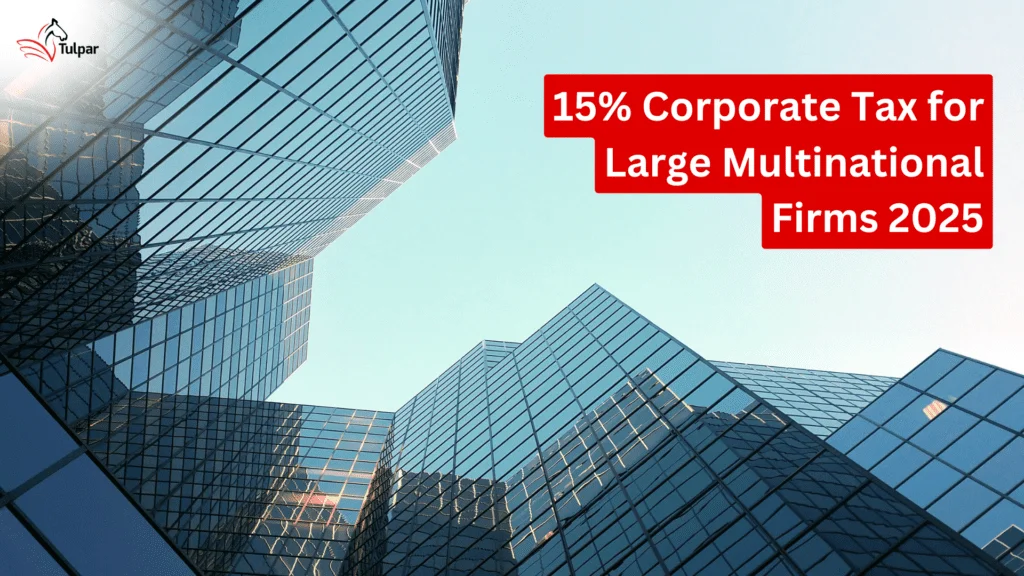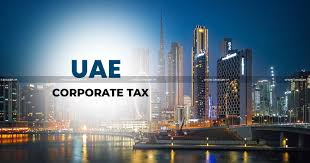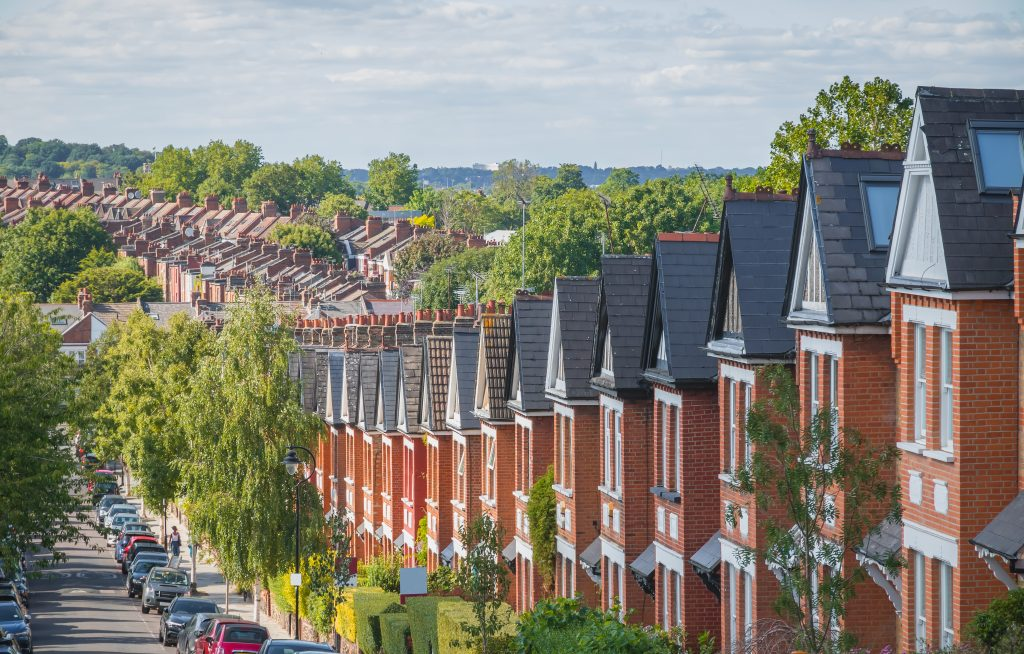Now Reading: How UAE Corporate Tax Affects Off-Plan Property Sales in 2025
-
01
How UAE Corporate Tax Affects Off-Plan Property Sales in 2025
How UAE Corporate Tax Affects Off-Plan Property Sales in 2025

Table of Contents
UAE Corporate Tax : The UAE’s real estate market in 2025 is thriving, with AED 893 billion ($243 billion) in 2024 transactions and off-plan property sales surging, particularly in high-demand areas like Dubai South, Saadiyat Island, and Al Marjan Island. The 9% corporate tax, effective June 2023 under Federal Decree-Law No. 47 of 2022, and the 15% Domestic Minimum Top-up Tax (DMTT) for multinationals with revenues over €750 million (AED 3 billion) starting January 2025.
significantly impact developers and corporate investors engaged in off-plan sales. This analysis explores how corporate tax affects off-plan property sales, focusing on American investors, tax implications, exemptions, and strategies to optimize returns of 7-11% in a tax-free personal income environment, ensuring compliance with Federal Tax Authority (FTA) regulations.
Corporate Tax Overview for Off-Plan Sales

Corporate tax applies at 9% to juridical persons (e.g., LLCs, developers) on taxable income above AED 375,000 ($102,000) from off-plan sales, defined as properties sold before completion. Taxable income includes profits from sales after deducting costs like land acquisition, construction, and marketing.
Individuals selling personal off-plan properties (up to four) are exempt from corporate tax, provided they hold no business license. For example, a developer selling AED 50 million ($13.6 million) in Dubai South off-plan units with AED 40 million in costs faces 9% tax on AED 9.625 million profit (after AED 375,000 exemption), equating to AED 866,250 ($235,900).
Impact on Off-Plan Property Sales
Off-plan sales, comprising 60% of Dubai’s 2024 transactions, offer 10-15% capital appreciation by completion (e.g., 2027 for projects like Ramhan Island). Corporate tax reduces net profits but allows deductions, and strategic structuring mitigates impact. Key effects include:
- Profit Margin Reduction: A developer with AED 10 million ($2.72 million) in off-plan profits in Yas Island pays AED 900,000 in tax, lowering net returns from 7-11% to ~6.3-10%. Deductions for construction costs (e.g., AED 2 million) save AED 180,000, softening the impact.
- Increased Compliance Costs: Developers must maintain seven-year records, adhere to transfer pricing for related-party transactions, and file returns within nine months, adding administrative costs (AED 20,000-50,000 annually).
- Pricing Adjustments: Some developers pass tax costs to buyers, increasing off-plan prices by 2-3% in areas like Al Marjan Island, though high demand (95% pre-sales in prime projects) absorbs this.
- Investor Appeal: Tax-free personal income, Golden Visas (AED 2 million), and no capital gains tax for individuals keep off-plan sales attractive, with 45% of 2025 Dubai buyers being foreign, including Americans.
Key Tax Implications and Exemptions
Several provisions shape the corporate tax impact on off-plan sales:
- Individual Exemption: Individuals selling up to four off-plan properties personally avoid corporate tax. A U.S. investor selling a AED 1 million ($272,000) Jumeirah Village Circle (JVC) unit with AED 200,000 profit incurs no tax, preserving 10-15% gains.
- Free Zone Exemption: Developers operating as Qualifying Free Zone Persons (QFZPs) in zones like Dubai South Free Zone or Ras Al Khaimah Economic Zone (RAKEZ) enjoy 0% tax on profits from free zone off-plan sales. A QFZP selling AED 20 million ($5.45 million) in Al Marjan Island units saves AED 1.8 million in tax, boosting 8-10% returns. Compliance with Decision 265 (local substance) is required.
- Small Business Relief: Developers with revenues below AED 3 million ($816,000) annually qualify for 0% tax until December 2026. A small firm selling AED 2 million in Ajman Corniche off-plan units saves AED 180,000, supporting 7-9% yields.
- VAT on First Sale: The first sale of off-plan residential properties incurs 5% VAT, e.g., AED 50,000 on a AED 1 million unit, payable by developers but often passed to buyers. Subsequent sales are VAT-exempt, per Federal Decree-Law No. 8 of 2017.
Strategic Tax Moves for Off-Plan Sales

To minimize corporate tax impact and optimize returns, investors and developers can adopt these strategies:
- Personal Ownership for Small Portfolios: Hold off-plan properties individually to avoid 9% tax. A U.S. investor buying three Dubai South units at AED 800,000 ($218,000) each, sold for AED 1 million each, keeps AED 600,000 profit tax-free, maximizing 12% gains.
- Free Zone Structuring: Use QFZP entities in DMCC or RAKEZ for off-plan projects in free zones, ensuring 0% tax on profits. A developer selling AED 30 million in Ras Al Khaimah units saves AED 2.7 million, requiring AED 50,000 in compliance costs.
- Maximize Deductions: Deduct costs like land, construction, and marketing. A developer with AED 100 million in Al Reem Island sales and AED 30 million in expenses saves AED 2.7 million in tax, maintaining 7-8% yields. Seven-year records are mandatory.
- Special Purpose Vehicles (SPVs): Set up free zone SPVs to isolate off-plan projects, qualifying for 0% tax and streamlining Golden Visa eligibility (AED 2 million). An SPV selling AED 5 million in Dubai Creek Harbour units avoids AED 450,000 in tax.
- Loss Carry-Forward: Offset losses from prior projects against off-plan profits. A developer with a AED 5 million ($1.36 million) loss from 2024 offsets 2025 Aljada profits, saving AED 450,000 in tax, per FTA rules.
- Zakat Planning for Muslim Investors: Muslim American developers pay Zakat (2.5% on trade assets above Nisab, ~AED 25,000/$6,800) on off-plan properties held for resale. A AED 10 million portfolio incurs AED 250,000 Zakat, but shifting to long-term intent exempts property value, taxing only income. Consult Islamic scholars for compliance.
- U.S.-UAE DTA Utilization: Use the U.S.-UAE double taxation agreement to credit UAE taxes against U.S. liabilities. A company paying AED 900,000 in UAE tax on AED 10 million profits offsets U.S. corporate tax (21%), minimizing global tax burden.
Impact Across Emirates
- Dubai: Off-plan sales dominate (60% of transactions), with Dubai South and JVC seeing 15% price growth. Corporate tax slightly reduces developer margins, but high demand and deductions maintain 7-9% yields.
- Abu Dhabi: Saadiyat and Al Reem Island off-plan projects yield 6-8%, with free zone exemptions in ADGM boosting returns. Subsidized land lowers taxable costs, offsetting tax.
- Ras Al Khaimah: Al Marjan Island’s off-plan boom benefits from RAKEZ’s 0% tax, delivering 8-11% yields. Tourism growth (3 million visitors by 2030) drives demand.
- Ajman: Affordable off-plan units (AED 400,000) and small business relief ensure 8-10% yields, with minimal tax impact for smaller developers.
Why This Matters for American Investors
UAE’s 7-11% yields outshine global markets like New York (4.2%), with no personal income tax, freehold ownership, and visa programs (2-year Investor Visa for AED 750,000, Golden Visa for AED 2 million) attracting 45% foreign buyers in Dubai’s 2025 market. Corporate tax’s impact on off-plan sales is mitigated by exemptions, deductions, and DTAs, ensuring competitiveness. Proximity to Dubai International Airport (20-45 minutes) adds value.
Market Outlook and Challenges
The UAE projects 5-8% price growth in 2025, with off-plan zones at 10-15%. The DMTT’s 15% rate for MNEs, stricter AML compliance, and a potential 10-15% correction in 2026 due to oversupply (41,000 Dubai units) pose risks.
Non-compliance with transfer pricing or filing deadlines (nine months post-financial year) incurs penalties up to AED 10,000. RERA-registered agents and FTA-accredited consultants ensure compliance, maximizing tax efficiency.
Conclusion
UAE’s 9% corporate tax impacts off-plan property sales by reducing developer margins, but exemptions for individuals, free zones, and small businesses, alongside deductions and strategic structuring, mitigate effects.
American investors can optimize 7-11% ROI through personal ownership, QFZP SPVs, and DTA credits in a dynamic 2025 market. With expert guidance, off-plan sales in Dubai, Abu Dhabi, and Ras Al Khaimah remain a high-return, tax-efficient opportunity, aligned with UAE’s growth vision. Corporate Tax
read more: 5 Powerful Tax Incentives Fueling Construction Growth in UAE





















